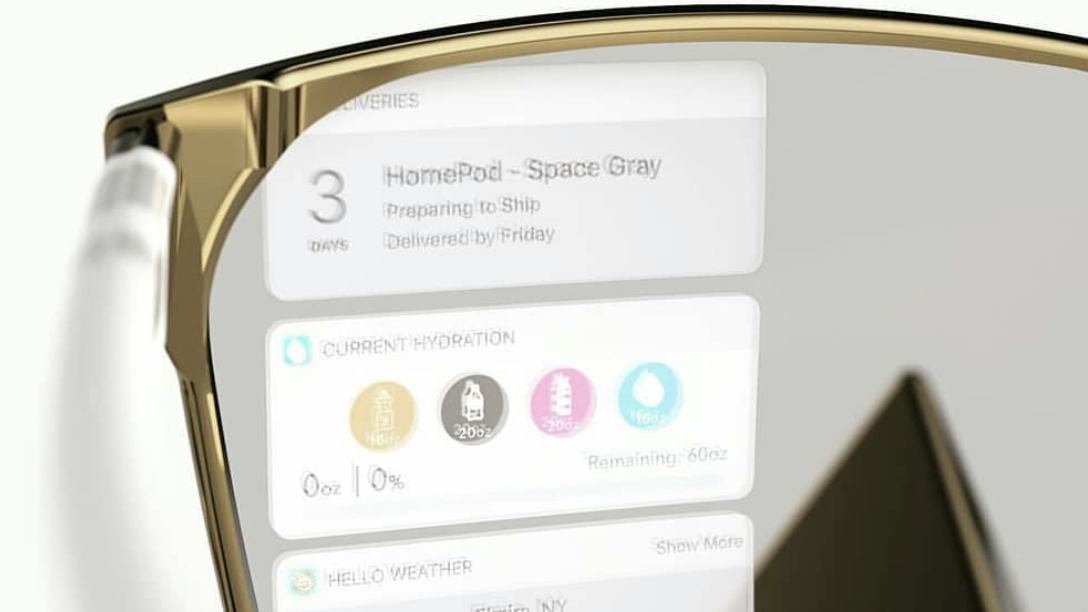Apple Glass could give your iPhone secret powers
A new Apple patent suggests AR glasses could let you privately view your iPhone screen

If you're the type of person who prefers total and absolute privacy when using your smartphone, you'll certainly appreciate Apple's latest patent application. "Privacy Screen", the product lined out in newly filed patent, is an intriguing way that could keep anyone – even you – from seeing what's on a screen without the aid of a very specific tool: Apple Glass.
As spotted by AppleInsider, the patent is credited to Clement Pierre Nicolas Boissi Re and Timothy R. Oriol and includes some rather striking potential applications for future Apple tech. If this is indeed something the company decides to pursue, it could certainly change the fundamental way we use our phones and tablets as a whole.
- The best VR headsets
- iPhone 12 rumors: Release date, features, price and more
- Plus: This 'secure' chat app spies on its users — what you need to know
Using the method proposed in the patent, Apple Glass users would simply be able to look at their iPhone or iPad screen using AR to see it as it would appear in real life. To anyone else viewing the phone without Apple Glass, it would simply seem blank instead. In addition to displaying information, this AR view could also register controls seen via Apple Glass on the device's screen, giving the illusion to the rest of the world that users were using a device that showed nothing on-screen.

Apple Glass isn’t on the near horizon for Apple; in fact the enigmatic AR lenses project has yet to even be confirmed. One analyst believes the product could appear in 2021, while others state they're likely way off, with a 2022 debut potentially in sight.
The reasoning behind the lengthy wait for more information could very well lie behind one of the potential applications for Apple Glass. The patent proposes a way to cut out the need for the kind of polarized screen covers some users adopt for their phones and monitors to keep prying eyes away.
Privacy screens are they’re flawed, the patent claims: “A user may remove the privacy screen when privacy is not a concern, in which case the user has to store, transport, and re-install the privacy screen," Obviously, this is an annoyance, so the application proposes that instead of wasting battery life increasing screen brightness or dealing with unwieldy shields, why not do away with it entirely?
In addition to the ability to obfuscate information outside of the wearer's Apple Glass, the application highlights how multiple devices can detect their relative position to each other. For instance, one device could potentially register if you're actively looking at it instead of another nearby, rendering the unused screen blank.
Sign up to get the BEST of Tom's Guide direct to your inbox.
Get instant access to breaking news, the hottest reviews, great deals and helpful tips.
As Apple touts its support for user privacy, this feature could very well become an important part of Apple Glass users’ repertoire of mechanics when and if the product finally launches. Even if this particular application ends up falling by the wayside — and patents are no guarantee that a feature ever appears in a shipping product — it’s certainly something that the company could eventually revisit.
Brittany Vincent has been covering video games and tech for over 13 years for publications including Tom's Guide, MTV, Rolling Stone, CNN, Popular Science, Playboy, IGN, GamesRadar, Polygon, Kotaku, Maxim, and more. She's also appeared as a panelist at video game conventions like PAX East and PAX West and has coordinated social media for companies like CNET. When she's not writing or gaming, she's looking for the next great visual novel in the vein of Saya no Uta. You can follow her on Twitter @MolotovCupcake.

